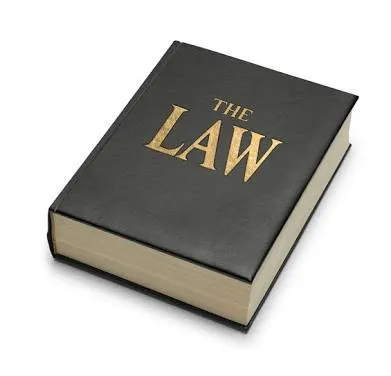In the Sermon on the Mount, Jesus talks much about the significance and estimation of the Law: "For really I let you know, until the point when heaven and earth vanish, not the smallest letter, not the least stroke of a pen, will by any means vanish from the Law until the point when everything is expert" (Matthew 5:18). The achieving of the Law was acknowledged in Jesus Himself, who came to satisfy the Law (verse 17). In verse 19, Jesus says, "Thusly any individual who puts aside one of the least of these charges and shows others in like manner will be called least in the kingdom of heaven, however whoever rehearses and instructs these orders will be called awesome in the kingdom of heaven."
As such, the Law is impeccable and sacred, and each order that God gave is similarly vital. The commandments are so imperative, Jesus stated, that on the off chance that someone puts aside what may be viewed as "one of the least" of them, at that point that person will be called "least in the kingdom of heaven." Conversely, the person who instructs the entire Law—and obeys it—will be called "extraordinary" in the kingdom.
It is vital to remember to whom Jesus was talking in the Sermon on the Mount, namely, Jews in Israel who were still under the allotment of the Law. At the time of Jesus' deliver to the hoards in Matthew 5, the Law was in full impact; the sanctuary was standing, the sacrifices were being offered, and the cloak was in place. When we make utilization of Jesus' words to the church today, we have to distinguish between the moral laws that God gave and the stately and common laws. At the point when Jesus cried, "It is finished!" from the cross, some laws, for example, those directing sacrifice and love, were clearly satisfied in light of the fact that Christ Jesus was the last and finish sacrifice. Different orders, for example, the charge not to murder or lie, are still as substantial now as ever. In the event that there is any uncertainty, the moral laws are rehashed in the New Testament epistles, while alternate laws (concerning diet, recognition of days, and so on.) are not rehashed for the church.
One day, Jesus will come back to the earth to set up His kingdom (Daniel 2:44; Revelation 11:15). Jesus' reference to the "least in the kingdom of heaven" in Matthew 5:19 recommends that there will be distinctive levels of respect in the kingdom. The criteria utilized for relegating honor appear to be founded on the treatment of God's Word.
The individuals who got God's Word and satisfied their obligations in God's sight will be called "extraordinary," yet the individuals who rejected parts of God's Word and evaded their duties will be called "least." This relates to the devotees' appearance before the judgment seat of Christ one day, where we will be rewarded in view of how loyally we served Christ (2 Corinthians 5:10). Some of us will "endure misfortune" when our work "will be appeared for what it is" and its quality does not breeze through the test (see 1 Corinthians 3:11– 15).
Immediately in the wake of talking about the individuals who are least in the kingdom of heaven, the Lord Jesus in a roundabout way censures the Pharisees and religious instructors for their wrongdoing concerning the Law: "For I disclose to you that unless your exemplary nature outperforms that of the Pharisees and the educators of the law, you will absolutely not enter the kingdom of heaven" (Matthew 5:20). The Pharisees, at that point, were cases of the individuals who "put aside" some of the commandments, and they would languish shame over it (see likewise Mark 7:1– 13). Not exclusively did their activities decrease some parts of the Law, yet they had no obvious exemplary nature—since they dismissed Christ.
In synopsis, Jesus showed that the Law is good (Matthew 5:18– 19), and the exemplary nature of the Law is satisfied in Himself (verse 17). His message was not in opposition to the Law; rather, His words confirmed the Law and His works achieved the Law. The individuals who lightly regard God's Word will themselves be lightly esteemed. Enormity in the kingdom of heaven won't be founded on one's endowments yet upon how one handles the Word of God (see 2 Timothy 2:15).


